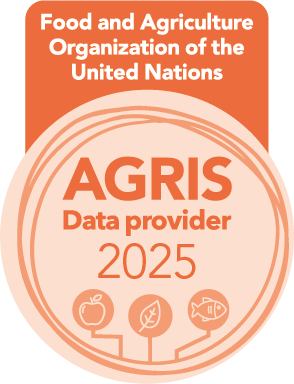A Comprehensive Survey Report On Caffeine Effect On Academic Performance
Caffeine Effect On Academic Performance
DOI:
https://doi.org/10.54393/df.v6i3.190Keywords:
Caffeine, Consumption, Academic Performance, Healthier AlternativesAbstract
Caffeine is consumed by students and is very common in different forms worldwide. While it has been researched to increase alertness and focus, it also imparts negative effects, such as disturbing a person’s sleep cycle. Objective: To assess how much people are aware of drinks containing caffeine and also their consumption of it. Methods: This was based on a report of 100 university-going students aged between 17 to 28 years who are the potential subjects to assess how the consumption of caffeine affects academic performance. The data were collected from The University of Lahore students. Results: Caffeine consumption was widespread among university students (71%), mainly through tea. While most saw no impact on academics, 31.6% noted improvements, and 6.5% reported declines. Nearly half experienced sleep issues, and over a third reported side effects like anxiety. Despite high awareness, many noted peer over-reliance, with 40.7% open to healthier alternatives. Conclusion: caffeine use among students reflects a balance between perceived cognitive benefits and potential health risks. Its mixed effects suggest the need for greater awareness and informed decision-making. Social influences and habitual use further highlight the importance of education on healthier alternatives.
References
1. Navied U, Daud S, Daud A, Rehman A, Zafar O. Knowledge and Practices of Fourth-Year Medical Students Regarding Caffeinated Drink Consumption: A Cross-Sectional Study. Pakistan Journal of Public Health. 2024 Sep; 14(3): 190-7. doi: 10.32413/pjph.v14i3.1360. DOI: https://doi.org/10.32413/pjph.v14i3.1360
2. Kamali R, Srinidhi S, Purna GS, Devi GM, Keerthana R, Elangovan S. Knowledge, Attitude and Practices Towards Consumption of Caffeine Containing Drinks among Medical College Students in Chennai. International Journal of Community Medicine and Public Health. 2024 Jan; 11(1): 182. doi: 10.18203/2394-6040.ijcmph20234123. DOI: https://doi.org/10.18203/2394-6040.ijcmph20234123
3. Ahmed HM, Bakheet TM, Hassan AO, Aref HG. Pattern of Consumption, Awareness, and Adverse Effects of Caffeine-Containing Beverages among Medical Students in Sohag University, a Cross-Sectional Study. The Egyptian Journal of Forensic Sciences and Applied Toxicology. 2024 Jun; 24(2): 87-100. doi: 10.21608/ejfsat.2024.285665.1327. DOI: https://doi.org/10.21608/ejfsat.2024.285665.1327
4. Dahlawi M, Hennawi YB, Baharith M, Almurakshi M, Bawashkhah A, Dahlawi S et al. The Association Between Caffeine Consumption and Academic Success in Makkah Region, Saudi Arabia. Cureus. 2024 Apr; 16(4). doi: 10.7759/cureus.57975. DOI: https://doi.org/10.7759/cureus.57975
5. Tahir DT, Ibad IU, Rehman U, Zahra TZ. Assessing the Correlation Between Caffeine Consumption and Its Effect on the Academic Performance of Medical Students of Shifa College of Medicine, Islamabad, Pakistan: A Cross-Sectional Study. Journal of Rawalpindi Medical College. 2022 Mar; 26(1). doi: 10.37939/jrmc.v26i1.1559. DOI: https://doi.org/10.37939/jrmc.v26i1.1559
6. Alqawasmi AA, Alsalhi NR, Omar AA, Fattah HA, Abuawad B, Zangana MA. Caffeine Consumption Patterns Among Medical Students: Implications for Health Education and Academic Performance. Journal of Natural Science, Biology and Medicine. 2024 Dec; 15(3): 562.
7. Rehman IU, Tahir D, Zahra T. Caffeine Consumption and Perceptions of Medical Students; A Cross-Sectional Study. Advances in Basic Medical Sciences. 2022; 6(2).
8. Gardiner C, Weakley J, Burke LM, Roach GD, Sargent C, Maniar N et al. The Effect of Caffeine on Subsequent Sleep: A Systematic Review and Meta-Analysis. Sleep Medicine Reviews. 2023 Jun; 69: 101764. doi: 10.1016/j.smrv.2023.101764. DOI: https://doi.org/10.1016/j.smrv.2023.101764
9. Smith A. Effects of Caffeine On Human Behavior. Food and Chemical Toxicology. 2002 Sep; 40(9): 1243-55. doi: 10.1016/S0278-6915(02)00096-0. DOI: https://doi.org/10.1016/S0278-6915(02)00096-0
10. Soós R, Gyebrovszki Á, Tóth Á, Jeges S, Wilhelm M. Effects of Caffeine and Caffeinated Beverages in Children, Adolescents and Young Adults: Short Review. International Journal of Environmental Research and Public Health. 2021 Nov; 18(23): 12389. doi: 10.3390/ijerph182312389. DOI: https://doi.org/10.3390/ijerph182312389
11. Hawamdeh M, Mashaal AH, Obaidat S, Al-Nassan S, Shallan A, Altaim TA et al. Effects of Caffeine Consumption on Exam Performance Throughout University Students. Age. 2024; 81: 57-9. doi: 10.70135/seejph.vi.2406. DOI: https://doi.org/10.70135/seejph.vi.2406
12. Bertasi RA, Humeda Y, Bertasi TG, Zins Z, Kimsey J, Pujalte G et al. Caffeine Intake and Mental Health In College Students. Cureus. 2021 Apr; 13(4). doi: 10.7759/cureus.14313. DOI: https://doi.org/10.7759/cureus.14313
13. Saimaiti A, Zhou DD, Li J, Xiong RG, Gan RY, Huang SY et al. Dietary sources, health benefits, and risks of caffeine. Critical Reviews in Food Science and Nutrition. 2023 Nov; 63(29): 9648-66. doi: 10.1080/10408398.2022.2074362. DOI: https://doi.org/10.1080/10408398.2022.2074362
14. Quadra GR, Paranaíba JR, Vilas-Boas J, Roland F, Amado AM, Barros N et al. A Global Trend of Caffeine Consumption Over Time and Related-Environmental Impacts. Environmental Pollution. 2020 Jan; 256: 113343. doi: 10.1016/j.envpol.2019.113343. DOI: https://doi.org/10.1016/j.envpol.2019.113343
15. Kharaba Z, Sammani N, Ashour S, Ghemrawi R, Al Meslamani AZ, Al-Azayzih A et al. Caffeine Consumption among Various University Students in the UAE, Exploring the Frequencies, Different Sources and Reporting Adverse Effects and Withdrawal Symptoms. Journal of Nutrition and Metabolism. 2022; 2022(1): 5762299. doi: 10.1155/2022/5762299. DOI: https://doi.org/10.1155/2022/5762299
16. Riera-Sampol A, Rodas L, Martínez S, Moir HJ, Tauler P. Caffeine Intake among Undergraduate Students: Sex Differences, Sources, Motivations, and Associations with Smoking Status and Self-Reported Sleep Quality. Nutrients. 2022 Apr; 14(8): 1661. doi: 10.3390/nu14081661. DOI: https://doi.org/10.3390/nu14081661
17. El-Nimr NA, Bassiouny SH, Tayel DI. Pattern of Caffeine Consumption among University Students. Journal of High Institute of Public Health. 2019 Dec; 49(3): 154-61.
18. Suter R, Miller C, Gill T, Coveney J. The Bitter and the Sweet: A Cultural Comparison of Non-Alcoholic Beverage Consumption in Japan and Australia. Food, Culture and Society. 2020 May; 23(3): 334-46. doi: 10.1080/15528014.2019.1679548. DOI: https://doi.org/10.1080/15528014.2019.1679548
19. Yasmeen K, Abbas MM, Imran H, Nadeem S, Bibi A, Anwar Z et al. Examining the Complex Interactions of Sleep Deprivation, Caffeine Intake, Stress, and Resilience on Cognitive Performance and Academic Success among College Students During High-Stakes Exams. Social Science Review Archives. 2024 Oct; 2(2): 244-58.
20. Hassan U. Prevalence and Awareness of Caffeine Consumption among the Medical Students. The Professional Medical Journal. 2020 Dec; 27(12): 2763-8. doi: 10.29309/TPMJ/2020.27.12.4631. DOI: https://doi.org/10.29309/TPMJ/2020.27.12.4631
Downloads
Published
Issue
Section
License
Copyright (c) 2025 DIET FACTOR (Journal of Nutritional and Food Sciences)

This work is licensed under a Creative Commons Attribution 4.0 International License.
This is an open-access journal and all the published articles / items are distributed under the terms of the Creative Commons Attribution License, which permits unrestricted use, distribution, and reproduction in any medium, provided the original author and source are credited. For comments









